Democrats are defending 23 of the 34 seats up for grabs this election cycle
Republicans are preparing for a potentially monumental battle to gain majority control of the Senate, as several highly contested elections loom on the horizon later this year.
Currently, Democrats hold a slim 51-49 majority in the U.S. Senate. However, the upcoming Senate map for 2024 appears to be in favor of Republicans, with Democrats defending 23 out of the 34 seats up for grabs. Notably, three of these contested seats are in states that former President Donald Trump won in 2020—West Virginia, Montana, and Ohio—making them key targets for Republican candidates.
Read More: In American Samoa, Trump is projected to win the Republican presidential caucuses
In addition to the previously mentioned seats, five other pivotal Senate seats are up for contention. Among these, one is held by an independent candidate. These seats are located in crucial swing states that President Biden narrowly carried in the 2020 election. These states include Arizona, Michigan, Nevada, Pennsylvania, and Wisconsin.
Furthermore, the Senate races in Texas and Florida draw attention, as incumbents Ted Cruz and Rick Scott, respectively, are seeking re-election. These states are anticipated to be the only potentially competitive GOP-held seats up for grabs in the upcoming election cycle.
Ohio
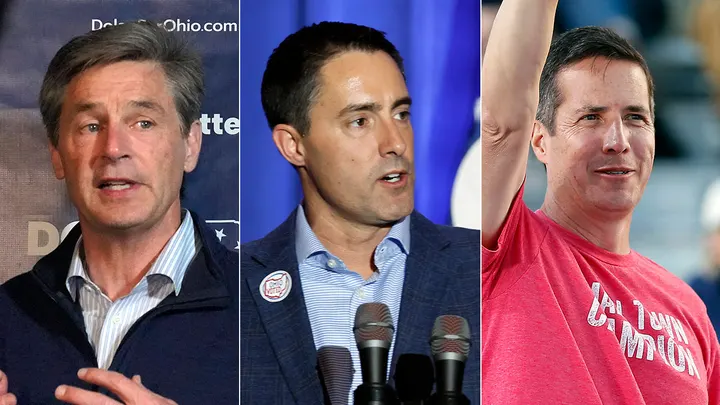
Democratic Senator Sherrod Brown stands out as the sole member of his party to secure a non-judicial, statewide election victory in Ohio over the past decade. As Brown embarks on his campaign for a fourth consecutive six-year term representing Ohio in the 2024 elections, he faces intense scrutiny and targeting by Republicans in the state. Ohio, once a significant battleground in general elections, has gradually shifted towards the Republican side over the past decade.
In the 2016 presidential election and the 2020 re-election bid, former President Trump carried Ohio with an eight-point margin. In the state’s Senate race two years ago, Trump’s endorsed candidate, Senator JD Vance, emerged victorious by a six-point margin over longtime Democratic Representative Tim Ryan. Despite Ryan’s campaign being regarded as nearly flawless by political analysts, Vance secured the win, further illustrating Ohio’s evolving political landscape.
Read More: Pro-Palestinian protesters called the president ‘genocide Joe’
Sherrod Brown, with a nearly half-century career in politics spanning various roles including congressman, state lawmaker, and Ohio secretary of state, has reportedly amassed $5.7 million in campaign funds in the first two months of 2024. This brings his campaign’s cash reserves to $13.5 million.
In the race to challenge Brown, two Republicans who previously vied for the 2022 GOP Senate nomination in Ohio are competing. State Senator Matt Dolan and businessman Bernie Moreno are both seeking to unseat Brown.
Dolan, a former prominent county prosecutor and Ohio assistant attorney general, officially launched his campaign in January 2023. Notably, Dolan’s family owns the Cleveland Guardians Major League Baseball team, and he has contributed millions of his funds to finance ads for his 2022 Senate bid.
Towards the conclusion of the primary race, Dolan experienced a surge, securing third place in a crowded field of Republican contenders and capturing nearly a quarter of the total vote.
Read More: After tearing up over Tom Brady, Gisele Bündchen poses for a racy beach photoshoot
Bernie Moreno, a thriving businessman based in Cleveland and a magnate in the luxury auto dealership industry, announced his candidacy in April. Moreno, an immigrant who legally arrived in the U.S. from Colombia with his family at the age of 5, invested significant personal funds into his first Senate bid, running television commercials to bolster his campaign. However, he suspended his candidacy in February 2022 after arranging and attending a private meeting with Trump.
Last summer, Ohio Secretary of State Frank LaRose entered the race, initiating a highly anticipated Senate campaign. The state’s primary election is slated for March 19.
Montana
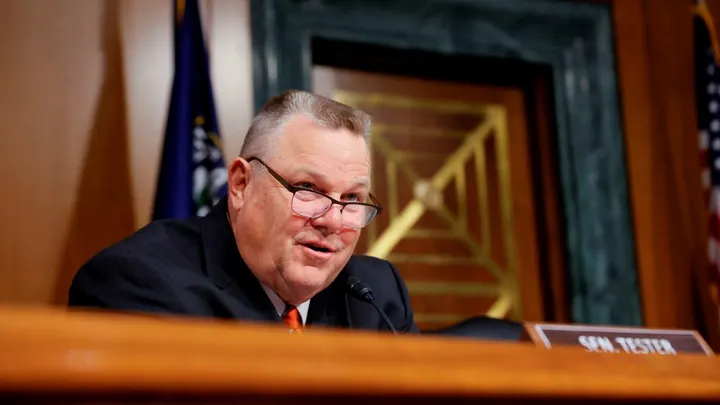
Democrats were relieved when Senator Jon Tester of Montana announced his intention to seek re-election in 2024, especially given that Trump carried Montana with a 16-point margin in the 2020 presidential election. Tester, the Democratic incumbent, is running unopposed and has amassed an impressive $15 million in fundraising as of the end of 2023.
Tim Sheehy, a former Navy SEAL and Purple Heart recipient with over 200 missions under his belt from conflicts in Iraq, Afghanistan, and other global theaters, launched a Republican Senate bid in late June. Sheehy currently serves as the CEO of Bridger Aerospace, a Montana-based company specializing in aerial firefighting and wildfire surveillance services. He has garnered support from the National Republican Senatorial Committee (NRSC) and received an endorsement from Trump just last month.
Sheehy is set to compete against four other GOP contenders, including former Montana Secretary of State Brad Johnson, in the state’s primary election on June 4.
Initially, Rep. Matt Rosendale, known for his hard-right stance, had entered the Senate race but later withdrew. Rosendale, who narrowly lost to Senator Tester in the 2018 Senate election, had planned to seek re-election in Montana’s 2nd Congressional District after exiting the Senate race. However, last week, Rosendale announced the suspension of his House campaign, citing ongoing “attacks” against him.
Arizona
With Senator Kyrsten Sinema, a Democrat-turned-independent, announcing her decision not to seek re-election, the focus on the Senate race in Arizona, a crucial battleground state, has shifted to two prominent candidates.
Representative Ruben Gallego, a Democrat representing Arizona’s 3rd Congressional District, has emerged as the top Democratic contender for the Senate seat. Gallego’s campaign reported raising $3.3 million in the fourth quarter of 2023, and since launching his bid in January 2023, he has raised a total of $13 million.

On the Republican side, Kari Lake, a former TV news anchor who previously ran for governor of Arizona in 2022, has gained significant attention. Endorsed by several leading Senate Republicans and former President Trump, Lake quickly became the frontrunner in the GOP primary race after entering in October.
Reports indicate that Lake raised $2 million in the approximately 11 weeks after entering the race, but she spent nearly half of that amount, leaving her with just over $1 million in the bank and $308,000 in debt at the start of 2024.
Before Lake entered into the race, Mark Lamb, a Republican serving as sheriff for Pinal County, filed paperwork to run for the Senate seat in April. Seven other Republicans are also vying for their party’s nomination in the state’s primary election on July 30th.
Wisconsin
In Wisconsin, incumbent Senator Tammy Baldwin, a Democrat, is seeking to secure a third term in the upper chamber.
Baldwin, who announced her candidacy for re-election last April, has represented Wisconsin in the Senate since 2013. Before her Senate tenure, she served in the Wisconsin State Assembly and represented the state’s 2nd Congressional District in the House from 1999 to 2013.
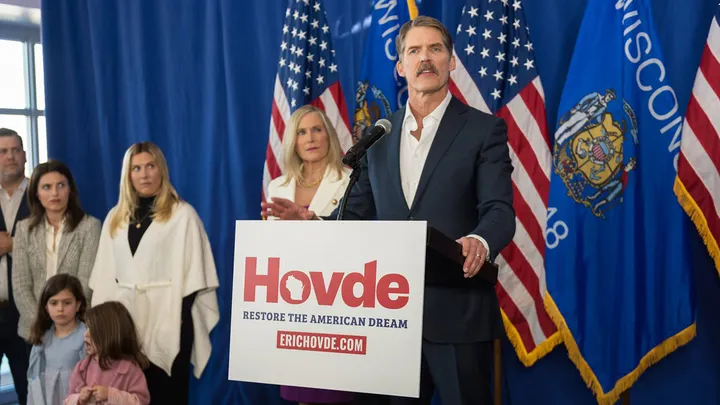
Running unopposed in the Democratic primary, Baldwin has garnered strong support from her party at both the state and national levels. However, Republicans are eager to challenge her for the seat in this election cycle.
GOP businessman and real estate mogul Eric Hovde launched his Senate bid in February and quickly became a target for Democrats as they seek to defend the seat.
Last week, the Senate Majority PAC initiated a $2 million ad buy targeting Hovde as a “multi-millionaire California banker,” attempting to portray him as an “out-of-touch carpetbagger” whose interests do not align with those of Wisconsinites.
Reacting to the ad campaign, Mike Berg, the communications director for the National Republican Senatorial Committee (NRSC), remarked on social media platform X: “How bad are @TammyBaldwin and @SenSchumer panicking about @EricHovde?”
Hovde previously ran for the Senate in 2012 but was defeated in the GOP primary by former Governor Tommy Thompson. Subsequently, Senator Baldwin emerged victorious in the general election that year.
West Virginia
With Senator Joe Manchin of West Virginia opting not to seek re-election, the Senate race in West Virginia appears more favorable for Republicans as they aim to shift the seat from blue to red.
Last year, Senator Steve Daines, Chairman of the National Republican Senatorial Committee (NRSC), expressed confidence, stating, “We like our odds in West Virginia.”
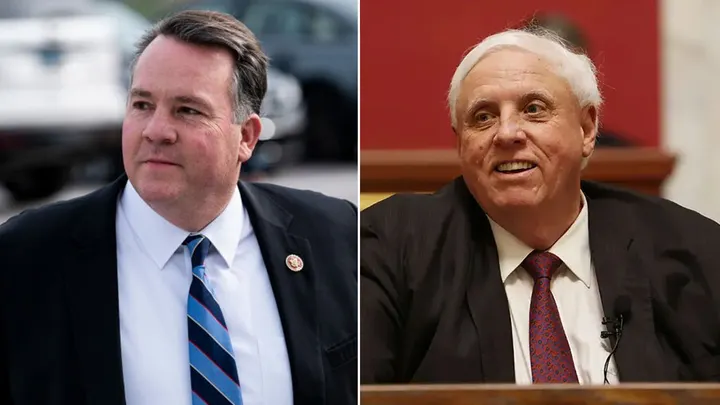
Currently, the primary focus is on the Republican Senate primary, where popular Democrat-turned-Republican Governor Jim Justice enjoys the support of the NRSC and former President Trump. Among Justice’s six Republican competitors, the primary contender for the GOP Senate nomination is Republican Representative Alex Mooney. Mooney represents the state’s 2nd Congressional District and has garnered backing from the fiscally conservative Club for Growth.
Following Senator Manchin’s decision not to seek re-election, the first Democrat to enter the race was 32-year-old Zachary Shrewsbury, a West Virginia native and Marine Corps veteran. Joining Shrewsbury in the Democratic primary are Don Blankenship and Glenn Elliott.
Senator Manchin announced his departure from the race in November, citing in a video posted online that he believes he has “accomplished what I set out to do for West Virginia” during his tenure in the Senate. Manchin, who previously served as the state’s governor, was first elected to represent West Virginia in the Senate in a 2010 special election.
The primary election in West Virginia is scheduled for May 14th.
Pennsylvania
Pennsylvania, known as a perennial battleground state in general elections, is expected to host one of the most fiercely contested and expensive Senate races in the country in 2024.
Senator Bob Casey, a Democrat who previously served as the state’s auditor general and treasurer before winning his first Senate term in 2006, is seeking re-election for a fourth consecutive six-year term. Casey, who is not anticipated to face any significant primary challenge from within his party, is the son of a popular former governor.
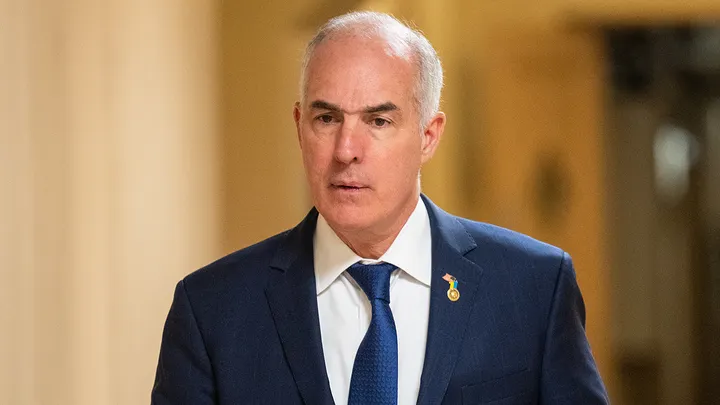
Republicans have coalesced around Dave McCormick as their candidate for the Senate seat. McCormick, a former hedge fund executive, West Point graduate, Gulf War combat veteran, and Treasury Department official during the George W. Bush administration, is making his second consecutive Senate bid. He narrowly lost the GOP primary in 2022 to Dr. Mehmet Oz, who was subsequently defeated in the general election by former Braddock Mayor John Fetterman.
McCormick received endorsement from the Pennsylvania GOP in late September soon after entering the race.
In his initial quarter as a candidate, McCormick managed to raise an impressive $5.4 million. Meanwhile, Casey’s campaign disclosed at the start of the year that it had garnered over $3.6 million in donations during the fourth quarter of 2023.
McCormick’s candidacy had drawn attention from both national and state Republicans, who sought him out as a potential candidate. His entry into the race provides the GOP with a prominent figure who possesses the capacity to fund his campaign.